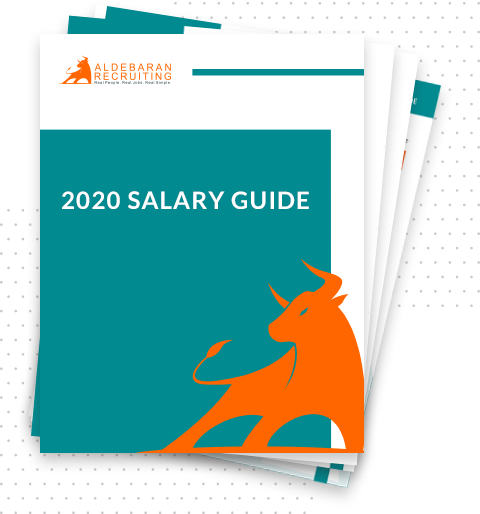Headhunting is really an aspect of recruiting.
You could say that all headhunters are recruiters, but not all recruiters are headhunters.
In fact, most recruiters aren’t headhunters at all.
And even most recruiters who consider themselves headhunters, aren’t truly headhunters.
A true headhunter possesses a specific skill set which allows them to effectively and aggressively tap into the passive talent market.
They are able to track and attain specific talents that would never have found out about a role or position otherwise.
HEADHUNTING VS. RECRUITING
Headhunters are really more like actual hunters, where recruiters are really more like farmers.
A normal recruiter is typically going to rely on a high volume of inbound submissions.
These passive submissions usually come from other job boards, a company web portal or something of that nature.
A recruiter is mostly working with active talent that is out in the market.
These people are applying for jobs, interviewing with multiple companies and submitting to a wide variety of companies.
Another thing a recruiter tends to deal with is having to screen hundreds and hundreds of irrelevant resumes.
Job boards are making it increasingly easier for people to apply to all kinds of positions without seeing if they’re a good fit.
On one side of the recruiting spectrum is a fully passive recruiter who is only dealing with inbound submissions.
On the other end of the spectrum you have a headhunter who doesn’t rely on inbound submissions at all.
A headhunter will almost never even talk to someone who is an inbound submission.
A HEADHUNTER’S NETWORK
Headhunters are 100% proactive in what they do, which is why it’s so important to have a well established network.
In headhunting, a well established network is defined by a large candidate pool.
A large candidate pool is no good unless you know how to interact in a way that’s going to get you the results you need.
A good headhunter knows how to continuously be expanding their network.
They will know how to massage their network in different ways to be able to constantly be drumming up new talent.
This is why headhunters tend to have more of a hunter and sales mentality than a recruiter on the other side of the spectrum.
WORKING WITH A HEADHUNTER
Headhunters are very good at learning exactly what their clients need as far as quality over quantity.
They will ask a lot of questions about what specifics are needed for a particular role, both hard skills and soft skills.
The more questions a headhunter asks, the more they’re going to be able to hone in on what their client needs.
Once the picture is clear about what the client needs, a headhunter is going to use their candidate network.
They will also use their extended network to make contact with hundreds, if not thousands of people.
RECRUITING PASSIVE TALENT
The majority of those are likely not actively on the job market looking for a job.
A headhunter is skilled at starting initial conversations with these people.
They will be able to get them interested, engaged and potentially making a move from their current company.
It requires a very specific skill set and a certain finesse to be able to get someone interested in another role when they’re happy where they’re at.
A headhunter is very good at building relationships and trust with candidates.
This allows them to guide them through the process while continually selling and closing them along the way.
Working with passive talent requires a lot more handholding and selling of an opportunity along the way.
This is an important distinction that many recruiters and hiring managers don’t understand.
Someone who is currently working needs to be treated differently than someone who isn’t working or is already actively looking.
Someone actively looking for a position already has a very high degree of motivation to make a move.
Passive candidates don’t have as high motivation and it’s a good headhunter’s job to move them to a place of high motivation.
This is where more of a selling piece comes into play and less of a farming piece.
SEEKING SPECIALIZED TALENT
Headhunters are best used when you are requiring some sort of specialized talent.
If you have a role that is specialized in any way you’re likely going to need someone to lead a proactive effort to find the right person.
It’s highly unlikely that specialized talent is going to find your job on a job board or your website.
The odds of this happening with even one person are extremely slim, let alone with a handful of people to choose a quality candidate from.
With any sort of specialized role you’re looking to fill it’s critical to have an outbound proactive strategy in order to find those people.
Those people are most likely working for your competition or in adjacent industries or verticals.
This is also where a headhunter is going to be extremely effective and useful at tapping into your competition.
They will tap into neighboring industries and verticals and give you an advantage to poach from some of your competition and other companies.
The ability to poach highly effective and sought after talent will give you a certain competitive edge in being able to compete in the marketplace.
Often times the people who are not working and are actively looking for a position are in that place for a reason.
HEADHUNTING PASSIVE TALENT
The best talent on the market is typically the passive talent.
We know many candidates who have never applied for a job in their life and have never been on the market looking.
They’ve always been sought after or recruited and have only moved jobs when they were recruited by headhunter.
Those are the kind of people that you want to be able to get for your organization as that is the best talent in the market.
The absolute only reliable way to go after those people is to have them headhunted.
The only other second option is going to be networking within your organization or pure luck.
Networking within your organization or your own network can be a very useful tool.
That is something that should be explored, but it’s likely it will be exhausted fairly quickly.
You want to have an abundance of solid talent coming your way so that you’re able to pick the best of the best.
A headhunter is going to give you the ability to pick the best of the best.
CONCLUSION
Headhunters are recruiters, but not all recruiters are headhunters.
On a spectrum of recruiting, regular recruiters are more like farmers and headhunters are more like hunters.
Headhunters are extremely useful for proactive poaching from competition and also proactive tapping into the passive talent pool.
Make sure to assess your needs and figure out what the best strategy is for you and your company.
It’s likely a headhunter is going to be useful in many ways and the trick is finding a good one.
Check out some of our other blogs about the best way to work with recruiters.
Not sure if hiring a recruiter is right for you? Here are some things to consider: https://bit.ly/2ybIQ9L
Want to find out about working with us? Let’s chat! https://aldebaranrecruiting.com/looking-for-talent/



